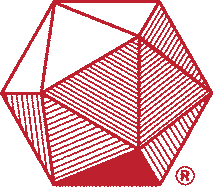
www.maa.org |
 The Mathematical Association of America Rocky Mountain Section |

about our logo |
- Home
- History
- Meetings
- Minutes
- Spring 2016 Executive
- Spring 2016 Business
- Spring 2015 Executive
- Spring 2015 Business
- Spring 2014 Executive
- Spring 2014 Membership
- Spring 2013 Executive
- Spring 2013 Membership
- Fall 2012 Executive
- Fall 2012 Membership
- Spring 2012 Executive
- Spring 2012 Membership
- Fall 2011 Executive
- Fall 2011 Membership
- Spring 2011 Executive
- Spring 2011 Membership
- Fall 2010 Executive
- Fall 2010 Membership
- Spring 2010 Executive
- Spring 2010 Membership
- Minutes Archive
- Newsletters
- 2010 – present (HTML)
- Fall 2020
- Spring 2020
- Fall 2019
- Spring 2019
- Fall 2018
- Spring 2018
- Fall 2017
- Spring 2017
- Fall 2016
- Spring 2016
- Fall 2015
- Spring 2015
- Fall 2014
- Spring 2014
- Fall 2013
- Spring 2013
- Fall 2012
- Spring 2012
- Fall 2011
- Spring 2011
- Fall 2010
- Spring 2010
- 2010 – present (PDF)
- PDF Newsletters
- Spring 2021 (PDF)
- Spring 2019 (PDF)
- Fall 2018 (PDF)
- Spring 2018 (PDF)
- Fall 2017 (PDF)
- Spring 2017 (PDF)
- Fall 2016 (PDF)
- Spring 2016 (PDF)
- Fall 2015 (PDF)
- Spring 2015 (PDF)
- Fall 2014 (PDF)
- Spring 2014 (PDF)
- Fall 2013 (PDF)
- Spring 2013 (PDF)
- Fall 2012 (PDF)
- Spring 2012 (PDF)
- Fall 2011 (PDF)
- Spring 2011 (PDF)
- Spring 2010 (PDF)
- 2005 – 2009 (PDF)
- 1999 – 2004
- Fall 2004 (PDF)
- Spring 2004 (PDF)
- Fall 2003 (PDF)
- Spring 2003 (HTML)
- Fall 2002 (HTML)
- Spring 2002 (HTML)
- Fall 2001 (HTML)
- Spring 2001 (HTML)
- Fall 2000 (HTML)
- Spring 2000 (HTML)
- Fall 1999 (HTML)
- Newsletter Archive
- 2010 – present (HTML)
- Section NExT
- Awards
- Burton W Jones Award for Distinguished College or University Teaching
- MAA Certificate of Meritorious Service
- Early Career Teaching Award
- Undergraduate Research Conference Awards
- Section Activity Grant Program
- Student Recognition Grant Program
- Burton W. Jones Award Nomination Guidelines
- MAA Awards, Prizes, and Lecturers
- Students
- Links
- Search
|
|
Early Career Teaching Award GuidelinesPart of the core mission for the Rocky Mountain Section is to provide recognition for quality mathematics teaching. The Early Career Teaching Award was established to recognized excellence in teaching in the mathematical sciences for faculty that are early in their career.EligibilityNominees must:
Guidelines for nominationNominees for the award may be made by any member of the Rocky Mountain Section of the MAA.Nominees should:
Complete nomination packet is due January 15. Nomination PacketA complete nomination packet should consist of the following documentation as it is described below.
|